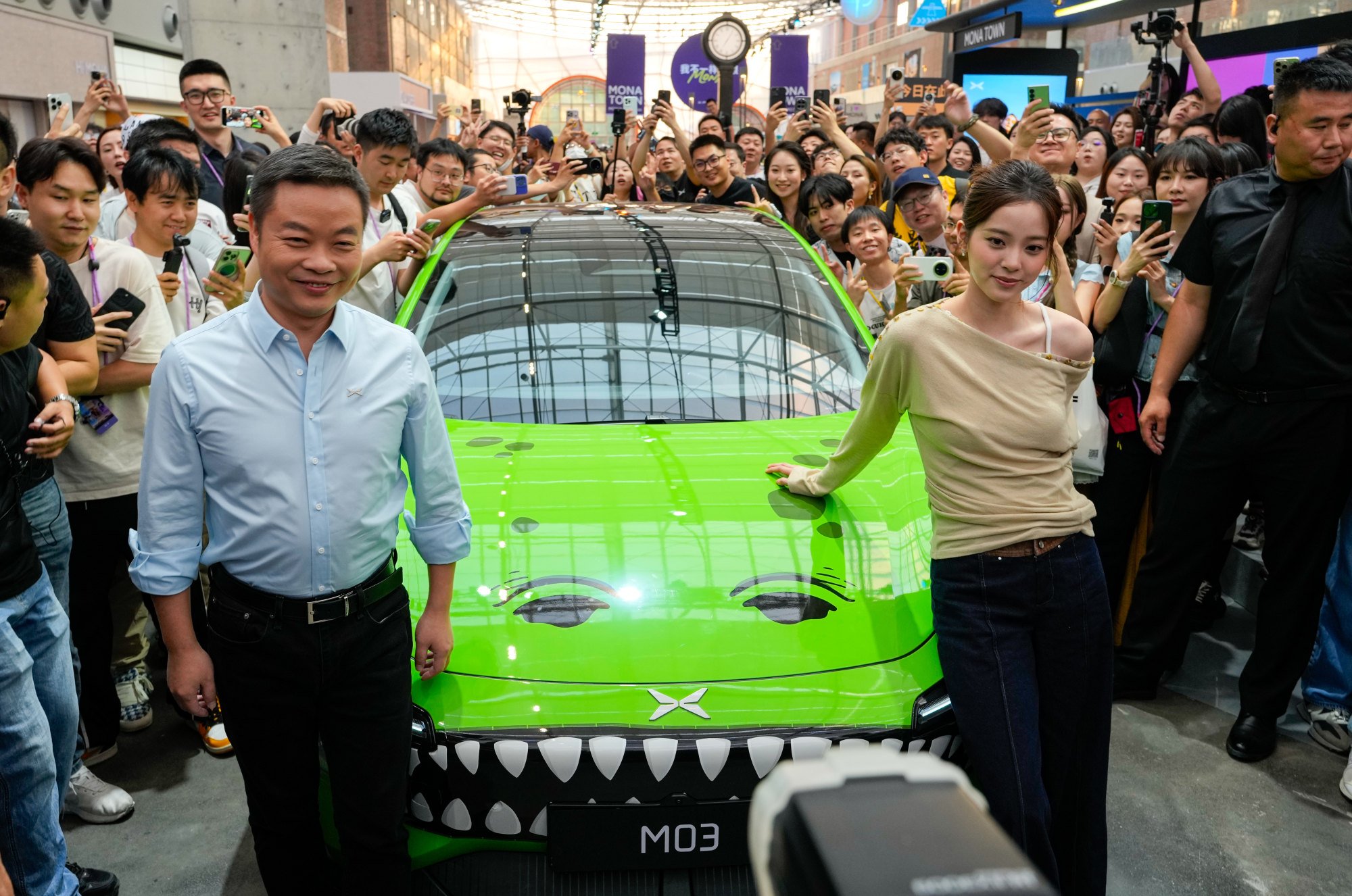Apart from hefty price discounts, carmakers are offering more bells and whistles in their latest models to stand out from the crowd
Competition in mainland China’s budget electric vehicle (EV) segment is likely to intensify as consumers seek value for money, according to dealers and analysts.
With at least a dozen intelligent EVs under 150,000 yuan (US$20,864) – from
BYD
to
Leapmotor
– qualifying for up to 20,000 yuan in subsidies, consumers are spoiled for choice. At the same time, a fierce price war is pulling in budget-conscious buyers.
“Consumption downgrade has spread to the car market as consumers are increasingly shunning expensive models,” said Zhao Zhen, a sales director at Shanghai-based dealer Wan Zhuo Auto. “But leading Chinese carmakers are able to churn out high-performance EVs at about half the prices of Tesla’s Model 3 and Model Y.”
Do you have questions about the biggest topics and trends from around the world? Get the answers with
SCMP Knowledge
, our new platform of curated content with explainers, FAQs, analyses and infographics brought to you by our award-winning team.
Conventional and battery-powered cars priced between 100,000 yuan and 150,000 yuan accounted for a third of overall sales, or about 7 million units, on the mainland last year, according to data from the China Passenger Car Association (CPCA).
Among the bestselling models, Xpeng’s Mona M03, which starts from 119,800 yuan, has been siphoning off sales of
Tesla’s Model 3
priced from 235,500 yuan to 339,500 yuan.
Guangzhou-based Xpeng claims the fully electric midsize sedan to be the world’s first smart EV priced below US$20,000 to have semi-autonomous driving capability. The car can automatically navigate urban streets with the driver assistance system turned on, but drivers are still required to be fully alert and keep their hands on the wheel at all times.
Geely is offering discounts of up to 18 per cent on the Galaxy Starship 7 compact hybrid SUV, priced from 97,800 yuan to 130,800 yuan, to bolster sales amid heightened competition.
BYD on Saturday launched the Seal 06 pure EV. Priced from 109,800 yuan, the car can self-park and has voice-activated recognition capability, enhancing its competitiveness in the segment.
“In top-tier cities like Shanghai, prices of those cars are equivalent to a middle-income consumer’s annual salary,” said Eric Han, a senior manager at Suolei, an advisory firm in Shanghai. “They are making the latest smart car technologies affordable to more people.”
In April, 163,400 EVs priced between 80,000 yuan and 150,000 yuan were sold on the mainland, an increase of 16.2 per cent from a year earlier, according to the CPCA.
Competition has intensified in this segment as foreign marques have accelerated their new model launches to regain lost ground.
In late April,
Nissan unveiled the N7 EV at the Shanghai car show
, pricing it between 119,900 yuan and 149,900 yuan. The car, which has a range of 645km, received 17,215 orders in just over a month after presales began.
On the mainland, a monthly delivery of 10,000 units by a model is considered a key measure of success.
“I am convinced by only five or six models, all of which feature advanced digital and automotive technologies, and their prices are acceptable,” said Zeng Wei, a Shanghai-based consumer looking for a car. “I may choose one with the steepest discount.”
Leading EV makers such as BYD, the world’s largest EV maker,
Geely
and start-up Leapmotor slashed prices of 70 models by as much as 20 per cent in the last week of May to retain market share, according to the 21st Century Business Herald newspaper.
Chinese carmakers offered a record high 16.8 per cent average discount on their products in April, compared with 8.3 per cent in 2024, JPMorgan Chase said in a research report last month.
Nick Lai, head of auto research in Asia-Pacific at JPMorgan, said the price cuts would cloud the companies’ earnings outlook as their profit margins further declined.
Of the country’s 50-odd EV manufacturers, only three are known to be profitable. These are BYD; Li Auto, the closest rival of Tesla on the mainland; and Seres, builder of the Aito-brand intelligent vehicles.
More Articles from SCMP
China’s consumer prices fall for fourth month in May amid weak demand, trade tensions
Britney Wong doubles up again at Sha Tin as Cheval Valiant leads them a merry dance
Critically injured Hong Kong officer ‘did what he needed to do’: police chief
Letters from readers: Writing books, love for football and the school orchestra
This article originally appeared on the South China Morning Post (www.scmp.com), the leading news media reporting on China and Asia.
Copyright (c) 2025. South China Morning Post Publishers Ltd. All rights reserved.







